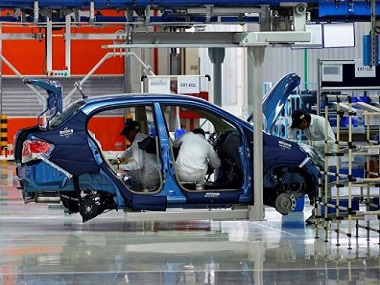London/Tokyo: Honda will close its only British car plant in 2021 with the loss of up to 3,500 jobs, a major departure of Japanese investment announced just over a month before the United Kingdom is due to leave the European Union. The Japanese firm, which builds a tenth of Britain’s 1.5 million cars at its Swindon plant, said the move was not related to Brexit and that it needed to focus its activity in regions where it expects to sell most cars, after struggling in Europe. But the timing of the announcement, just 38 days before Brexit, comes amid deepening Japanese corporate worries about investing in Britain after it leaves the EU. “This decision was not informed by Brexit,” said Honda Chief Executive Takahiro Hachigo. “We had to consider the rise of electrified vehicles and the different speeds at which electric vehicles will be taken up in North America and Europe.” Honda, which builds its Civic car in Britain and Turkey, said it would stop making the model in both countries. The announcement comes just over two weeks after fellow Japanese carmaker Nissan reversed its decision to build a new SUV in Britain. [caption id=“attachment_5876851” align=“alignleft” width=“380”] Representational image. Reuters[/caption] Honda, Britain’s fourth-biggest automaker, will cease production at its Swindon plant which made 1,60,000 cars in southern England in 2018. It follows decisions by Japanese electronics companies Sony and Panasonic to move their headquarters from Britain into the EU, while Hitachi put a $28 billion nuclear power project in Britain on hold in January. Devastating decision Some 1,000 Japanese firms are based in Britain, employing around 1,40,000 people, and have invested about 60 billion pounds ($78 billion), according to the Japanese embassy in London. Nissan, Toyota and Honda were encouraged to come to Britain in the 1980s as a pro-business gateway to the EU and have helped turn around a domestic car industry that had been decimated. The trio currently build half of Britain’s cars and hundreds of thousands of engines at production sites across the country. “This is a devastating decision for Swindon and the UK,” said business minister Greg Clark. For Honda, declining demand for diesel vehicles and tougher emissions regulations have also clouded its manufacturing prospects. The company said in October 2017 it would stop making vehicles at its Sayama plant in Japan by 2022 as it grapples with a shrinking domestic market. Like many of its global rivals, Honda is trying to streamline its operations as it invests heavily to develop electric vehicles and self-driving cars. The recently agreed EU-Japan trade agreement means tariffs on cars from Japan to the bloc will be eliminated, while Britain is struggling to make progress on talks over post-Brexit trade relations with Tokyo. Honda said that was not part of the decision-making process but the firm’s boss said it would benefit from the EU-Japan deal. Britain’s largest trade union Unite said it would continue to consult with the company and fight to keep the site open. “We will leave no stone unturned to keep this plant going and its workforce in employment,” said national officer for the automotive sector Des Quinn. “We believe that the uncertainty that the … government has created by its inept and rigid handling of the Brexit negotiations lurks in the background.”
Honda said the move was not related to Brexit and that it needed to focus its activity in regions where it expects to sell most cars
Advertisement
End of Article


)

)
)
)
)
)
)
)
)



